Raed Alharbi
Generative AI in Saudi Arabia: A National Survey of Adoption, Risks, and Public Perceptions
Jan 26, 2026Abstract:Generative Artificial Intelligence (GenAI) is rapidly becoming embedded in Saudi Arabia's digital transformation under Vision 2030, yet public awareness, adoption, and concerns surrounding these tools remain underexplored. This study provides an early snapshot of GenAI engagement among Saudi nationals. Using a nationwide survey of 330 participants across regions, age groups, and employment sectors, we examine seven dimensions of GenAI use: awareness and understanding, adoption patterns, perceived impacts, training needs, risks and barriers, data-sharing behaviors, and future expectations. Findings show that 93% of respondents actively use GenAI primarily for text-based tasks, while more advanced uses such as programming or multimodal generation are less common. Despite the prevalence of use, overall awareness and conceptual understanding remain uneven, with many reporting limited technical knowledge. Participants recognize GenAI's benefits for productivity, work quality, and understanding complex information, yet caution that sustained reliance may undermine critical thinking and key professional skills. Trust in AI-generated outputs remains cautious, with widespread concerns about privacy, misinformation, and ethical misuse, including potential job displacement. Respondents show strong interest in structured GenAI training that combines foundational skills, domain-specific applications, and clear guidance on privacy, ethics, and responsible use. These results establish a baseline for GenAI engagement in Saudi Arabia and highlight priorities for policymakers and developers: expanding AI literacy, ensuring culturally and linguistically aligned GenAI solutions, and strengthening frameworks for privacy and responsible deployment.
Swift Hydra: Self-Reinforcing Generative Framework for Anomaly Detection with Multiple Mamba Models
Mar 09, 2025



Abstract:Despite a plethora of anomaly detection models developed over the years, their ability to generalize to unseen anomalies remains an issue, particularly in critical systems. This paper aims to address this challenge by introducing Swift Hydra, a new framework for training an anomaly detection method based on generative AI and reinforcement learning (RL). Through featuring an RL policy that operates on the latent variables of a generative model, the framework synthesizes novel and diverse anomaly samples that are capable of bypassing a detection model. These generated synthetic samples are, in turn, used to augment the detection model, further improving its ability to handle challenging anomalies. Swift Hydra also incorporates Mamba models structured as a Mixture of Experts (MoE) to enable scalable adaptation of the number of Mamba experts based on data complexity, effectively capturing diverse feature distributions without increasing the model's inference time. Empirical evaluations on ADBench benchmark demonstrate that Swift Hydra outperforms other state-of-the-art anomaly detection models while maintaining a relatively short inference time. From these results, our research highlights a new and auspicious paradigm of integrating RL and generative AI for advancing anomaly detection.
OASIS: Offsetting Active Reconstruction Attacks in Federated Learning
Nov 23, 2023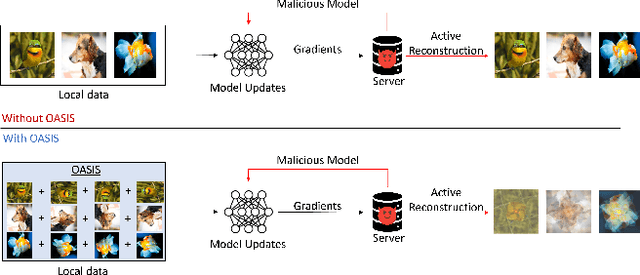

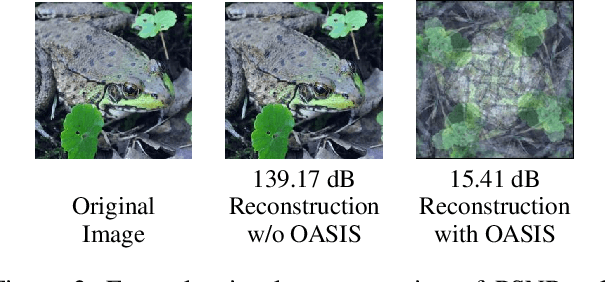

Abstract:Federated Learning (FL) has garnered significant attention for its potential to protect user privacy while enhancing model training efficiency. However, recent research has demonstrated that FL protocols can be easily compromised by active reconstruction attacks executed by dishonest servers. These attacks involve the malicious modification of global model parameters, allowing the server to obtain a verbatim copy of users' private data by inverting their gradient updates. Tackling this class of attack remains a crucial challenge due to the strong threat model. In this paper, we propose OASIS, a defense mechanism based on image augmentation that effectively counteracts active reconstruction attacks while preserving model performance. We first uncover the core principle of gradient inversion that enables these attacks and theoretically identify the main conditions by which the defense can be robust regardless of the attack strategies. We then construct OASIS with image augmentation showing that it can undermine the attack principle. Comprehensive evaluations demonstrate the efficacy of OASIS highlighting its feasibility as a solution.
Cultural-aware Machine Learning based Analysis of COVID-19 Vaccine Hesitancy
Apr 14, 2023Abstract:Understanding the COVID-19 vaccine hesitancy, such as who and why, is very crucial since a large-scale vaccine adoption remains as one of the most efficient methods of controlling the pandemic. Such an understanding also provides insights into designing successful vaccination campaigns for future pandemics. Unfortunately, there are many factors involving in deciding whether to take the vaccine, especially from the cultural point of view. To obtain these goals, we design a novel culture-aware machine learning (ML) model, based on our new data collection, for predicting vaccination willingness. We further analyze the most important features which contribute to the ML model's predictions using advanced AI explainers such as the Probabilistic Graphical Model (PGM) and Shapley Additive Explanations (SHAP). These analyses reveal the key factors that most likely impact the vaccine adoption decisions. Our findings show that Hispanic and African American are most likely impacted by cultural characteristics such as religions and ethnic affiliation, whereas the vaccine trust and approval influence the Asian communities the most. Our results also show that cultural characteristics, rumors, and political affiliation are associated with increased vaccine rejection.
Masader Plus: A New Interface for Exploring +500 Arabic NLP Datasets
Aug 01, 2022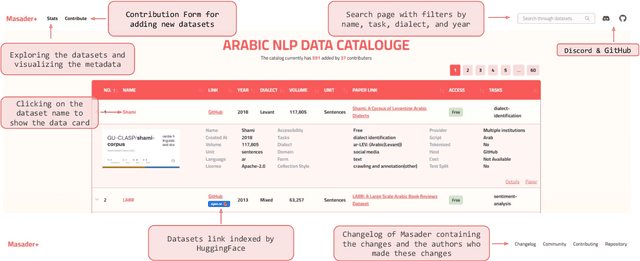
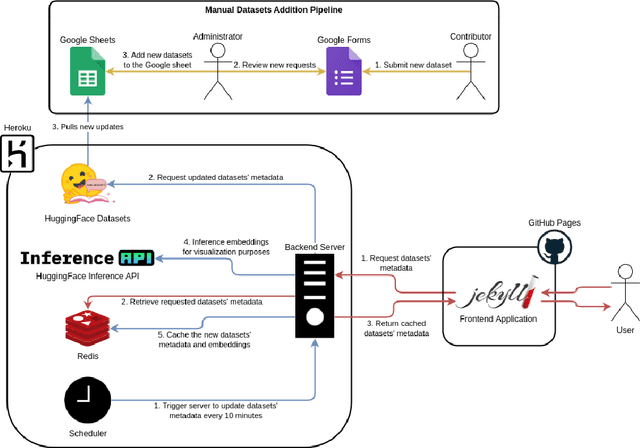
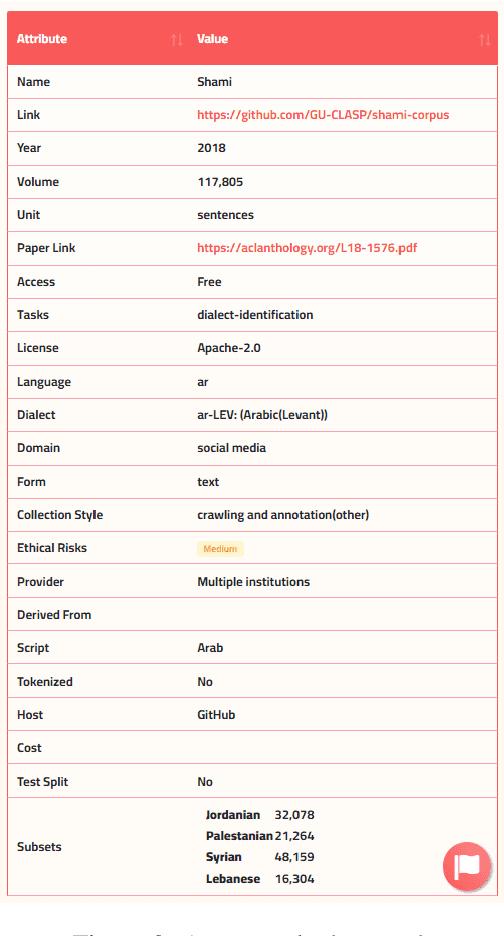
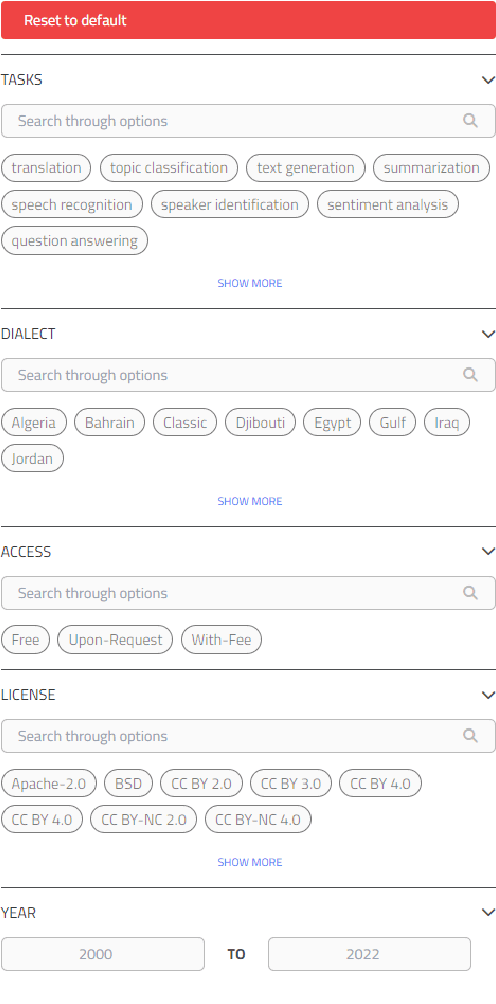
Abstract:Masader (Alyafeai et al., 2021) created a metadata structure to be used for cataloguing Arabic NLP datasets. However, developing an easy way to explore such a catalogue is a challenging task. In order to give the optimal experience for users and researchers exploring the catalogue, several design and user experience challenges must be resolved. Furthermore, user interactions with the website may provide an easy approach to improve the catalogue. In this paper, we introduce Masader Plus, a web interface for users to browse Masader. We demonstrate data exploration, filtration, and a simple API that allows users to examine datasets from the backend. Masader Plus can be explored using this link https://arbml.github.io/masader. A video recording explaining the interface can be found here https://www.youtube.com/watch?v=SEtdlSeqchk.
Learning Interpretation with Explainable Knowledge Distillation
Nov 12, 2021


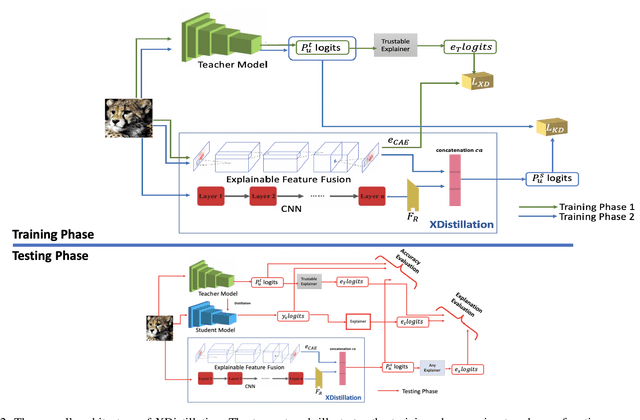
Abstract:Knowledge Distillation (KD) has been considered as a key solution in model compression and acceleration in recent years. In KD, a small student model is generally trained from a large teacher model by minimizing the divergence between the probabilistic outputs of the two. However, as demonstrated in our experiments, existing KD methods might not transfer critical explainable knowledge of the teacher to the student, i.e. the explanations of predictions made by the two models are not consistent. In this paper, we propose a novel explainable knowledge distillation model, called XDistillation, through which both the performance the explanations' information are transferred from the teacher model to the student model. The XDistillation model leverages the idea of convolutional autoencoders to approximate the teacher explanations. Our experiments shows that models trained by XDistillation outperform those trained by conventional KD methods not only in term of predictive accuracy but also faithfulness to the teacher models.
 Add to Chrome
Add to Chrome Add to Firefox
Add to Firefox Add to Edge
Add to Edge